What do Xi and Macron want from each other?
To reciprocate Chinese President Xi Jinping’s warm welcome of French President Emmanuel Macron to Beijing last year, Macron pulled out all the stops to accord Xi the royal treatment during the latter’s visit to France this week. However, notes Lianhe Zaobao correspondent Yang Danxu, playing up the “personal” card may not be enough when it comes to state-to-state interactions.
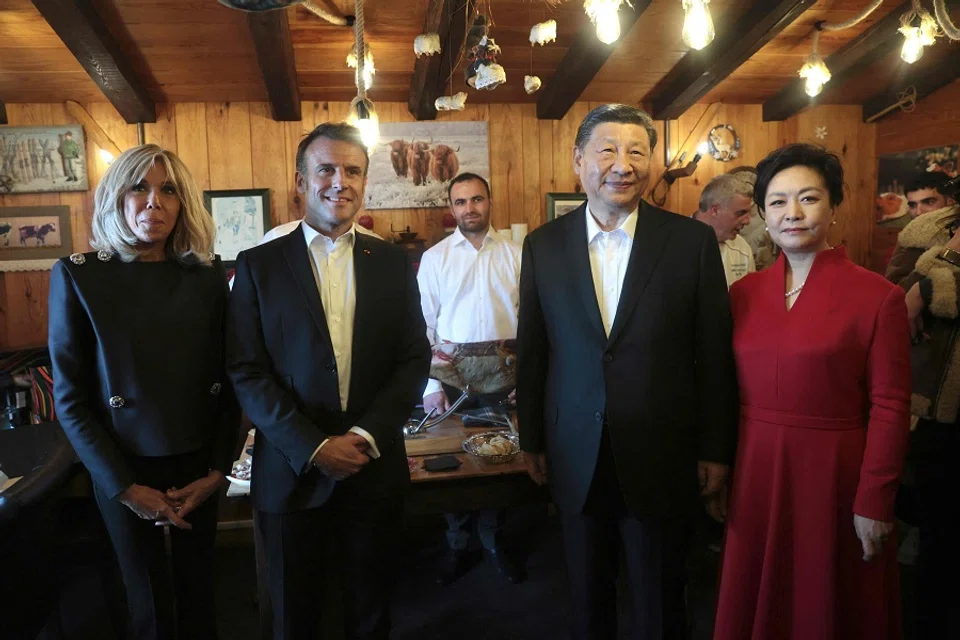
Chinese President Xi Jinping is visiting Europe for the first time in five years, with the first stop being France.
After the China-France-EU trilateral meeting and China-France bilateral talks at the lavish Elysée Palace, French President Emmanuel Macron received Xi again on 7 May at the Pyrenees mountains, a skiing haven in southern France.
Second hometown
This is a place of special significance for Macron, with the media calling it his “second hometown”. Although Macron was born and grew up in Amiens in northern France, during his summer and winter holidays he often headed to the Col du Tourmalet in the Pyrenees region where his maternal grandmother lived. After her passing, his maternal grandmother was buried there as well, and Macron regularly went to pay his respects.
The arrangement for Xi clearly showed that the French had put a lot of thought into the visit. Firstly, this was a diplomatic reciprocal gesture for Xi’s reception of Macron last year.
When Macron visited China in April 2023, he was given the royal treatment. Besides the grand gun salute, inspection of the guard of honour and state dinner in Beijing, Xi even made a rare trip down south to Guangdong, where his father, Xi Zhongxun, once governed, to receive this distinguished guest.
Both held an informal meeting at Xi Zhongxun’s former residence in Songyuan, Guangzhou, walking in the courtyard and admiring the Lingnan Garden as they took in the scenery and sampled tea while listening to the classical guqin tune “High Mountains and Flowing Water”, which symbolised bosom friends. Xi even recounted memories of visiting his father in Guangdong during the late 1970s.
Some analysts believe that China sees France as a potential starting point to loosen the close ties between Europe and the US, constructing a world not led by the US.
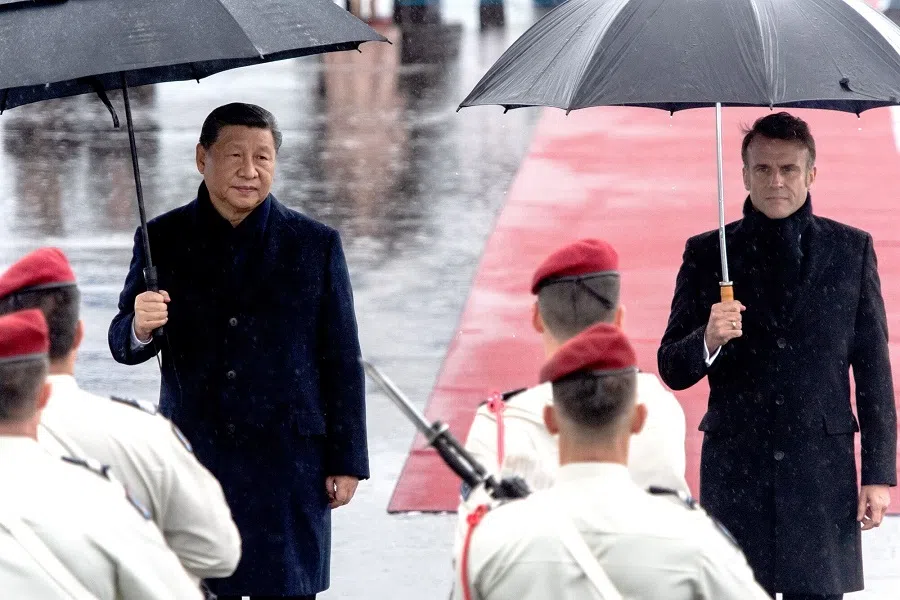
From Xi Zhongxun’s residence to Macron’s second hometown, both sides hope that by playing the “personal” card, they can break free from the shackles of diplomatic etiquette, and create a relaxed atmosphere for a more open and honest exchange and dialogue.
Loosening Europe-US ties
Xi’s current visit to France, ostensibly commemorating the 60th anniversary of China-France diplomatic relations, is also seen as an opportunity for both parties to seek breakthroughs amidst the current geopolitical landscape.
Some analysts believe that China sees France as a potential starting point to loosen the close ties between Europe and the US, constructing a world not led by the US.
France is one of the most influential countries in Europe and a key force in the European Union (EU). Moreover, its handling of relations with China is more independent compared with other Western nations, and this provided China with some room to manoeuvre.
France is the first major Western nation to forge diplomatic relations with China. With the extremely tense China-US relations recently dragging down China’s relationship with the West, France’s expression of their position on certain sensitive issues that China is deeply concerned with has been perceived positively by Beijing.
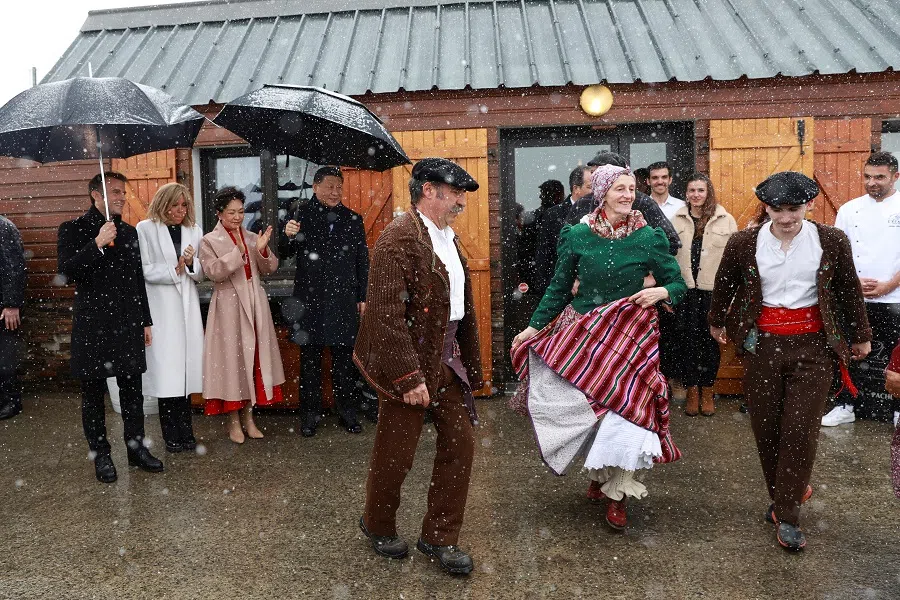
On his flight back after his visit to China last year, Macron stated that Europe must not become the US’s “followers”, and even more importantly must avoid being dragged into the confrontation between China and the US over the Taiwan issue.
Although Macron has been firm in criticising China’s overcapacity and other economic and trade issues, he has also pushed for Europe’s strategic autonomy, advocating for Europe to play the role of a balancing force.
He recently told La Tribune, “Let’s be clear, I’m not proposing to distance ourselves from China. Whether it’s about climate or about safety, we need the Chinese.”
Aside from wanting China to make concessions on trade and economics, Macron’s high-profile reception of Xi was similarly characterised by expectations that Beijing would exert influence on Moscow and play a more constructive role in the Russia-Ukraine war.
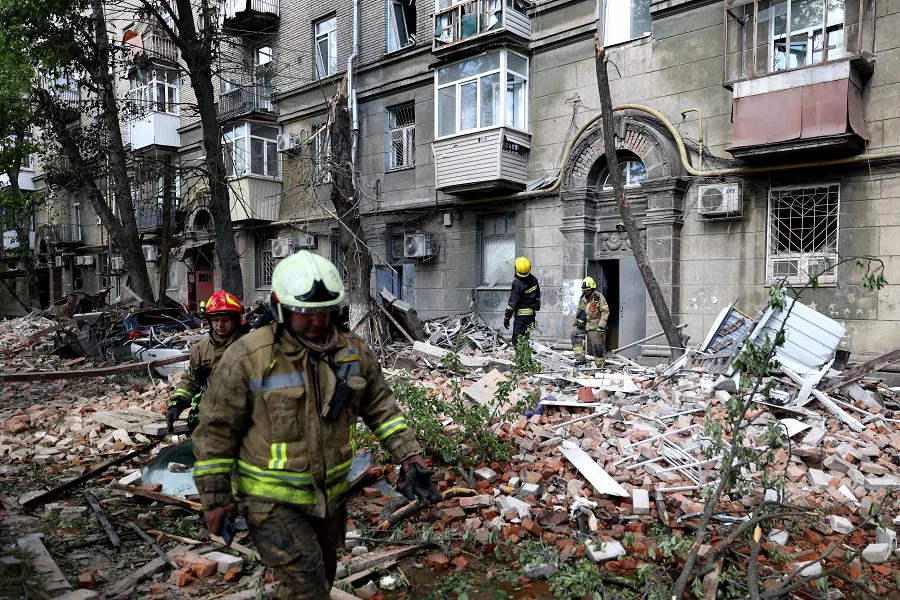
Macron had told The Economist earlier that the country does not rule out sending troops to Ukraine, while UK Foreign Secretary David Cameron also asserted that Kyiv has the right to strike targets on Russian territory. On 6 May, Russia announced drills involving tactical nuclear weapons in response to statements from the UK and France.
These latest developments run the risk of escalation and expansion in the Russia-Ukraine war. Macron told Xi on 6 May, “There can be no European security without Ukrainian security.” He urged France and China to maintain a close dialogue in this regard.
Viewed positively, Xi’s close relationship with Putin allows Beijing to speak to Moscow, which is believed to be why Macron wants to leverage Beijing’s power as well.
Strategic interests
Based on the information released by both sides after their meeting, Xi responded positively to the issue of China’s export of dual-use goods to the Russian military, which the West is currently most concerned about. Macron said that he respects China-Russia relations and also welcomes “the Chinese authorities’ commitments to refrain from selling any weapons or aid to Moscow, and to strictly control the export of dual-use goods”.
However, some Western public opinion pointed out that Xi’s Europe trip also includes travelling to pro-Russia Serbia and Hungary, in addition to France. As Xi’s visit to Serbia coincides with the 25th anniversary of NATO’s bombing of the Chinese Embassy in Belgrade, he is expected to criticise NATO, which is in line with Russia’s narrative of invading Ukraine on the basis of the NATO threat.
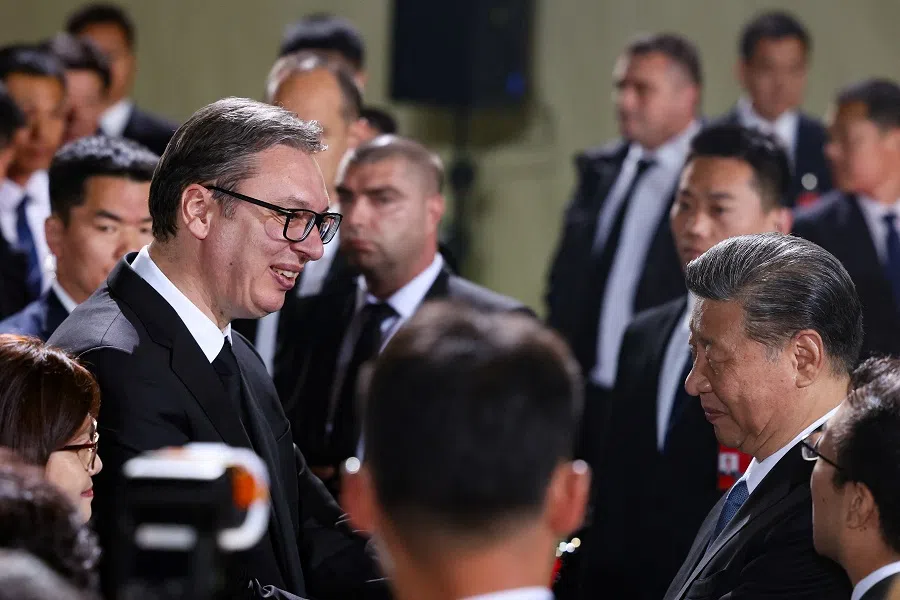
The Financial Times said in a commentary that Xi will receive Russian President Vladimir Putin in Beijing shortly after returning home, which would “deepen European apprehension about China’s real intentions”.
Objectively, Beijing chose France, Serbia and Hungary as destinations for Xi’s Europe trip based on the strategic value of these three countries. At the same time, the high-profile interactions between China and France are also about advancing their own interests, which is the most fundamental basis of state-to-state interactions.
Similarly, Beijing’s engagement with Moscow is also based on interests. Viewed positively, Xi’s close relationship with Putin allows Beijing to speak to Moscow, which is believed to be why Macron wants to leverage Beijing’s power as well.
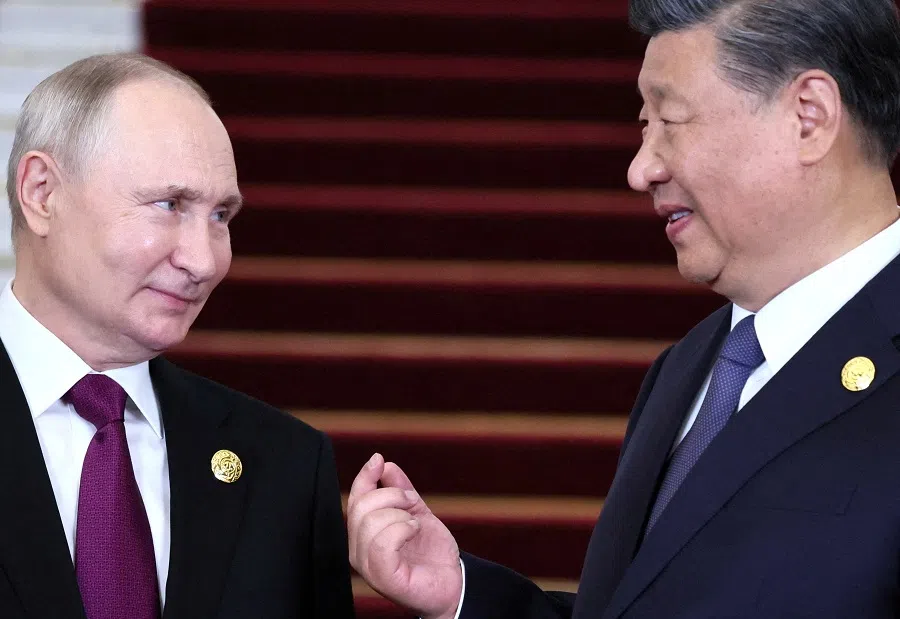
While Macron has gone to great lengths to host Xi, some French academics have instead criticised Macron for launching a charm offensive too excessively, which may not work on the Chinese leader, who is not known to be sentimental.
Relying on personal relations is certainly insufficient when it comes to state-to-state interactions, and so is launching a charm offensive. In the end, it still depends on whether the two sides have strategic leverage and economic complementarity.
This article was first published in Lianhe Zaobao as “从习仲勋故居到马克龙第二故乡”.





